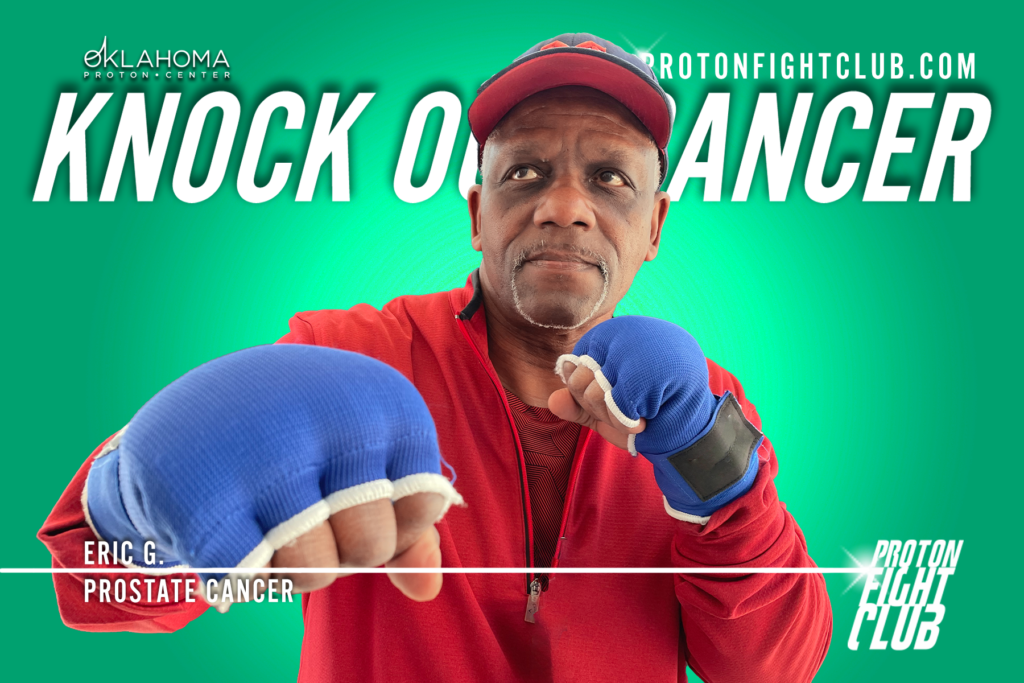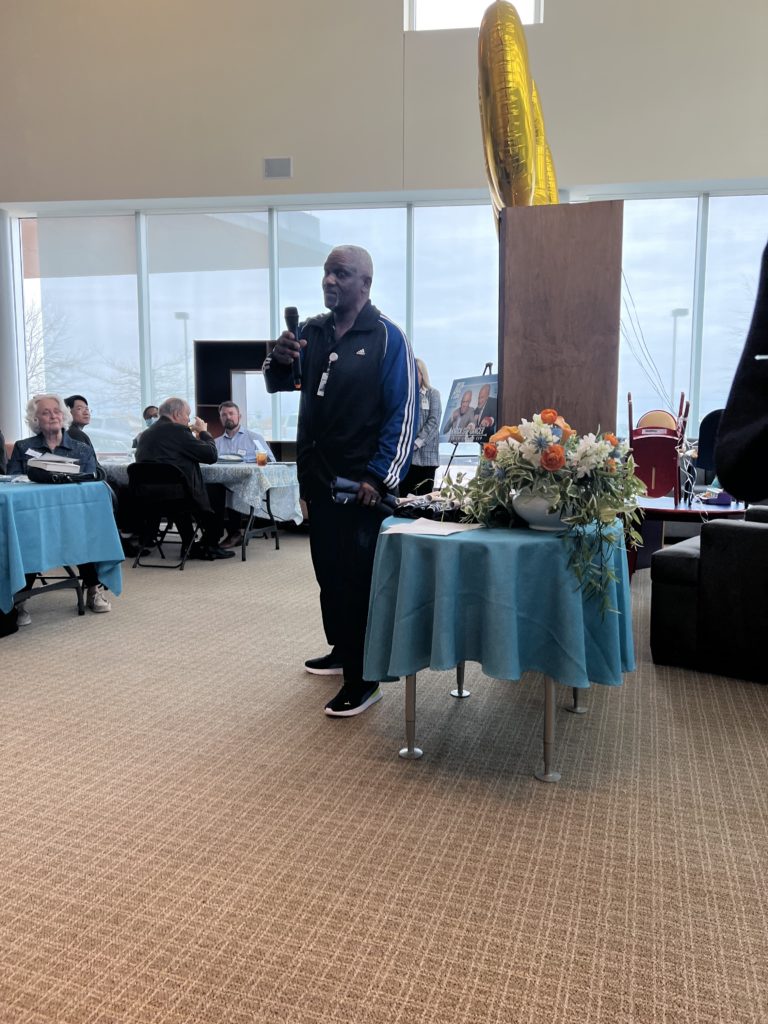Eric Green has a quiet, confident disposition. He is the kind of person you immediately feel drawn to when you meet him. Sharing stories of his upbringing in Baltimore, Maryland, and advising on all the places to check out when visiting the area, Eric instantly puts you at ease. With three grown children out of the house, he lives a quiet life with his loving wife Jackie. But his quiet life was disrupted recently with three words: “You Have Cancer.”
Eric always maintained an active lifestyle. This started during a 20-year military career-building “highways in the sky” for the United States Air Force. It continued into retirement with nearly daily golf or bowling outings. The wear and tear on his body eventually caught up to Eric and he was forced to have a double knee replacement surgery.
While undergoing routine tests before his surgery, Eric’s physician noticed his PSA level was gradually trending upwards. His previous PSA from the year before was slightly elevated as well. While he had prepared for knee surgery, he was not prepared to hear he had been diagnosed with prostate cancer.

Eric’s response to his cancer diagnosis was much like his response to learning he needed double knee replacement surgery. He dove headfirst into researching treatment options and wanted to find the best solution for his active lifestyle. After ruling out surgery, Eric had to decide between traditional radiation and proton therapy.
Protons have a unique capability of being able to stop inside the cancerous tumor, minimizing damage to surrounding healthy tissue and organs. In turn, this can help lessen the side effects experienced. Fewer side effects meant returning to normal daily activities for Eric. The decision was made. Eric would begin his prostate cancer treatment at Oklahoma Proton Center.
Although all men are at risk for prostate cancer, Black men are at higher risk. They are about twice as likely to get and die from prostate cancer as white men. While not definitively known, genetics, low enrollment in clinical trials, and disparities in health care may all contribute to the higher numbers of Black men being diagnosed with prostate cancer.
According to the American Cancer Society, Black men should start screening for prostate cancer at the age of 50, but a family history of prostate cancer could necessitate starting screening as early as 40. Eric had no family history of prostate cancer and maintained a healthy lifestyle, but was diagnosed at the age of 59 nonetheless.
Eric began his 40 proton therapy treatments in February 2022. While he was expecting to experience at least a few side effects, he said he generally felt well during treatment and was surprised by how seamless the process was. When asked how he felt his overall experience was, Eric said,

“I was truly blown away by the staff at Oklahoma Proton Center. The kindness they showed me during my time here is something you won’t find anywhere else. They truly care about you. Do the research. You won’t regret your decision.”
Eric was the 4000th patient to be treated at Oklahoma Proton Center. The significance of being the 4000thpatient was not lost on Eric. He knew this was a big milestone for the Center but wanted to stress that during his time here, he never felt like just a number. He was treated as a person. He was greeted daily when he showed up for treatment by smiling faces who called him by name. His questions were always answered. His care team took the time to visit with him and make sure he was well looked after.
While all of these things may seem like small gestures, they made a great impact and reassured Eric that he had made the right decision going to Oklahoma Proton Center.
Now that treatment is complete Eric looks forward to continuing to enjoy his retirement years with his wife Jackie and is planning to play in the Proton Pals Foundation golf tournament coming up in June as a way to give back to the facility and the people that gave so much to him.
